Text
The Unparalleled Importance of Email Marketing in the Digital Age
In an era dominated by social media, instant messaging, and evolving digital platforms, one might question the relevance of email marketing. However, contrary to popular belief, email marketing remains a cornerstone of digital communication strategies, boasting unparalleled importance and efficacy. This channel continues to be a potent tool for businesses to engage, nurture relationships, and drive conversions with their audience. Let's delve into the myriad reasons why email marketing continues to thrive and its enduring significance in today's dynamic marketing landscape.
1. Direct and Personalized Communication
Email marketing enables direct and personalized communication with your audience. Unlike social media where algorithms govern content visibility, emails directly reach the recipient's inbox. This one-on-one interaction fosters a sense of exclusivity and personal connection, allowing for tailored content delivery based on subscriber preferences, behavior, and demographics. Personalization enhances engagement and significantly boosts conversion rates, as it demonstrates a deeper understanding of the recipient's needs and interests.
2. Cost-Effectiveness and High ROI
One of the most compelling aspects of email marketing is its cost-effectiveness and impressive return on investment (ROI). Compared to traditional marketing channels, the overhead costs of creating and sending emails are relatively low. With advancements in automation and segmentation, businesses can efficiently reach a large audience with targeted, relevant content. Studies consistently show that for every dollar spent on email marketing, the ROI is remarkably high, making it an indispensable tool for businesses of all sizes.
3. Building and Nurturing Customer Relationships
Email marketing serves as a powerful medium for building and nurturing customer relationships. By consistently delivering valuable and engaging content, businesses can establish trust, credibility, and brand loyalty. Whether it's informative newsletters, exclusive offers, or personalized recommendations, well-crafted emails help in staying top-of-mind and strengthening the bond between the brand and its audience. Moreover, feedback mechanisms within emails facilitate direct communication, allowing for customer feedback, queries, and concerns to be addressed promptly.
4. Drive Conversions and Sales
Beyond relationship-building, email marketing is a potent driver of conversions and sales. Strategic email campaigns tailored to different stages of the buyer's journey can guide recipients through the sales funnel. Whether it's introducing new products/services, promoting discounts, or sending abandoned cart reminders, emails have the capacity to prompt action and lead subscribers towards making a purchase. The ability to segment lists based on user behavior further enhances the effectiveness of these campaigns, resulting in higher conversion rates.
5. Measurable and Data-Driven Insights
Another significant advantage of email marketing lies in its measurability and data-driven insights. Advanced analytics tools allow marketers to track various metrics such as open rates, click-through rates, conversion rates, and more. These insights provide valuable feedback, enabling continuous optimization of campaigns. A/B testing subject lines, content formats, and CTAs empowers marketers to refine strategies based on what resonates best with their audience, leading to continuous improvement and higher performance.
6. Adaptability and Integration with Other Channels
Email marketing seamlessly integrates with other marketing channels, enhancing overall campaign effectiveness. Whether it's social media, content marketing, or paid advertising, email serves as a connective thread that reinforces messaging across different touchpoints. Furthermore, its adaptability allows for innovation and experimentation, accommodating new trends such as interactive emails, dynamic content, and mobile optimization, ensuring relevance in an ever-evolving digital landscape.
In conclusion, despite the proliferation of various digital communication channels, email marketing remains an indispensable and powerful tool for businesses. Its ability to foster personalized interactions, nurture relationships, drive conversions, and provide actionable insights cements its significance in modern marketing strategies. Embracing the potential of email marketing is not just about sending messages but crafting engaging, relevant content that resonates with recipients, ultimately propelling business growth and success in the digital age.

#socialmediamarketing#marketing#digitalmarketing#digitalmarketingtips#entrepreneur#accounting#seo#social media#social marketing#socialmediatips
1 note
·
View note
Text
Importance of SEO
Search Engine Optimization (SEO) is a crucial digital marketing strategy that involves optimizing your website and content to improve its visibility on search engines like Google, Bing, and Yahoo. It plays a significant role in the success of online businesses and websites. In this 500-word essay, I will discuss the importance of SEO and its various aspects.
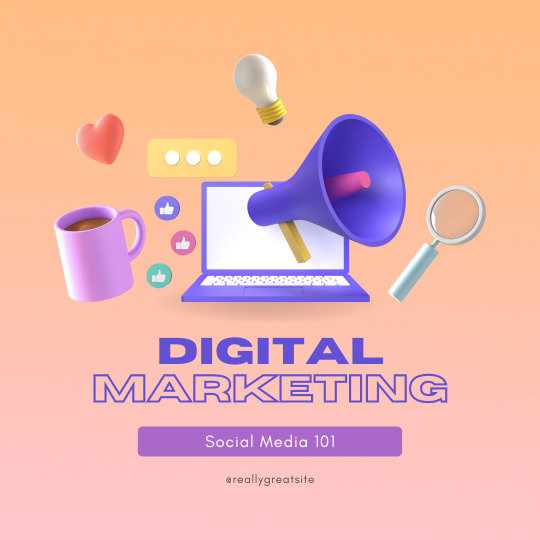
Increased Website Visibility: One of the primary reasons SEO is essential is that it enhances your website's visibility in search engine results pages (SERPs). When your website ranks higher for relevant keywords, it is more likely to be discovered by users searching for products, services, or information related to your business. Improved visibility means more organic (unpaid) traffic to your site.
Credibility and Trust: Websites that rank high in search results are often perceived as more trustworthy and credible. Users tend to trust Google's rankings, and if your site appears near the top, it can positively influence your brand's reputation.
Quality Traffic: SEO not only increases your website's traffic but also ensures that it attracts high-quality, relevant traffic. By optimizing for specific keywords, you can target users who are genuinely interested in what you offer, increasing the likelihood of conversions.
Cost-Effective Marketing: Compared to many other digital marketing strategies like pay-per-click (PPC) advertising, SEO is cost-effective in the long run. Once your site ranks well, you can continue to receive organic traffic without ongoing, significant expenses. It's an excellent investment in the sustainability of your online presence.
Competitive Advantage: Your competitors are likely investing in SEO. By doing the same or doing it better, you can gain a competitive advantage. Ranking higher than your competitors can result in capturing market share and more customers.
Improved User Experience: SEO isn't just about keywords and links; it also involves optimizing your website's structure, speed, and usability. A well-optimized site provides a better user experience, which not only satisfies visitors but can also positively impact your SEO rankings.
Local SEO: For brick-and-mortar businesses, local SEO is crucial. Optimizing for local searches helps potential customers in your area find you easily. This can be a game-changer for small businesses aiming to attract local foot traffic.
Adaptation to Changing Trends: The digital landscape is ever-evolving. SEO strategies adapt to these changes. Staying updated with the latest SEO trends and algorithms helps your website remain competitive in the dynamic online world.
Measurable Results: SEO provides measurable results. You can track your website's performance, identify what's working, and make adjustments as needed. Tools like Google Analytics and Google Search Console help you monitor your progress.
Global Reach: SEO allows you to reach a global audience. If your business can cater to international customers, optimizing your website for global search can expand your reach beyond borders.
Content Marketing Synergy: SEO and content marketing go hand in hand. High-quality content is essential for SEO success, and in turn, SEO helps your content reach a broader audience. This synergy can boost your content marketing efforts.
Mobile Optimization: With the increasing use of smartphones, mobile optimization has become vital. Google's mobile-first indexing means that your website's mobile version is the primary factor in how it ranks. SEO ensures your site is mobile-friendly.
Long-Term Strategy: Unlike some marketing tactics that offer short-term gains, SEO is a long-term strategy. Once you establish your website's authority and visibility, it can provide sustainable results over an extended period.
In conclusion, SEO is a critical component of any online business or website's success. It improves visibility, credibility, and trust while driving high-quality traffic. It's a cost-effective, competitive, and adaptable strategy that provides measurable results. With the ever-increasing importance of the digital world, investing in SEO is a smart decision for any business looking to thrive in the online marketplace

#socialmediamarketing#digitalmarketing#marketing#digitalmarketingtips#entrepreneur#accounting#social media#seo#social marketing#socialmediatips#digital drawing#digital illustration#the amazing digital circus#digital art#digital painting#academyawards#investigation#influencers#facebookads
5 notes
·
View notes
Text
The Importance of Seo in Today's Digital Landscape
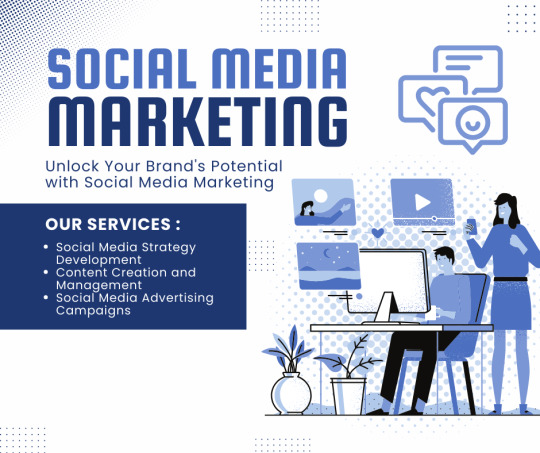
Search Engine Optimization (SEO) has become a fundamental element of online success in the digital age. In a world where billions of searches are conducted daily, SEO plays a pivotal role in ensuring that your website stands out, reaches the right audience, and maximizes its potential. This article delves into the significance of SEO in today's digital landscape, highlighting its impact on businesses, online visibility, user experience, and overall success.
Increased Visibility and Organic Traffic
One of the primary functions of SEO is to improve a website's visibility in search engine results. When users search for relevant keywords, an optimized website is more likely to appear at the top of the search results. This increased visibility can significantly boost organic traffic, as users are more likely to click on the top results. The higher you rank, the more clicks your website is likely to receive, leading to increased brand exposure and potential customers.
Enhanced User Experience
SEO is not just about keyword optimization; it also focuses on improving the overall user experience. User-friendly websites are more likely to rank higher in search results, as search engines aim to deliver the best possible experience to their users. This includes optimizing page load times, ensuring mobile responsiveness, creating clear and engaging content, and structuring the website for easy navigation. A well-optimized website not only attracts more visitors but also keeps them engaged and satisfied.
Cost-Effective Marketing
Compared to other digital marketing methods like pay-per-click advertising, SEO is a cost-effective strategy. Once your website is well-optimized, it can continue to attract organic traffic without ongoing ad expenses. While the initial investment in SEO can be significant, the long-term benefits far outweigh the costs. Over time, your website's organic traffic will provide a steady stream of visitors without the need for additional advertising budgets.
Competitive Advantage
In the competitive online landscape, SEO can give your business a significant edge. When your website ranks higher in search results than your competitors, you're more likely to attract potential customers. SEO enables you to stand out from the crowd, showcase your expertise, and build trust with your audience. This competitive advantage can be especially crucial in industries where online visibility and reputation are paramount.
Targeted Traffic
SEO allows you to target specific keywords and phrases relevant to your business or industry. This means that the traffic you attract is more likely to be interested in your products or services. Unlike some other marketing methods that reach a broad audience, SEO focuses on reaching those who are actively searching for what you offer. This results in higher-quality leads and potential customers who are more likely to convert.
Trust and Credibility
Websites that appear at the top of search results are often perceived as more trustworthy and credible by users. SEO helps build your online reputation and authority within your niche or industry. When your website consistently ranks well for relevant keywords, users are more likely to trust your content, products, and services. Trust and credibility are essential for long-term success and customer loyalty.
Adaptation to Changing Algorithms
Search engines frequently update their algorithms to provide better search results. SEO experts stay updated on these changes and adjust strategies accordingly. This adaptability is vital for maintaining and improving your search engine rankings. By staying informed and making necessary adjustments, you can ensure that your website continues to perform well in search results.
Local SEO for Brick-and-Mortar Businesses
Local SEO is particularly valuable for brick-and-mortar businesses. Optimizing your website for local search terms and creating a strong presence on platforms like Google My Business can help potential customers find your physical location and contact information easily. This is especially important for businesses aiming to attract local foot traffic.
Mobile Optimization
With the increasing use of mobile devices, having a mobile-optimized website is crucial. Search engines prioritize mobile-friendly websites, and mobile optimization is now considered a ranking factor. SEO helps ensure that your website is accessible and user-friendly on all devices, improving its chances of ranking well in mobile search results.
Measurable Results
SEO provides data-driven insights that allow you to track your website's performance. You can measure various metrics, including traffic, click-through rates, conversion rates, and more. This data helps you understand the effectiveness of your SEO efforts and make informed decisions to continually improve your online presence.
In conclusion, SEO is an indispensable component of modern digital marketing. It impacts a website's visibility, user experience, cost-effectiveness, and competitive advantage. By optimizing for targeted keywords, building trust and credibility, and staying up-to-date with search engine algorithms, businesses can harness the power of SEO to attract and convert potential customers. In an ever-evolving digital landscape, SEO is a vital tool for achieving online success and ensuring your brand's longevity in the digital world.

#socialmediamarketing#digitalmarketingtips#digitalmarketing#entrepreneur#marketing#accounting#seo#social media#social marketing#socialmediatips
4 notes
·
View notes
Text
Social Media Marketing
Social media marketing has revolutionized the way businesses connect with their audience, promote their products or services, and build brand recognition. In today's digital age, a strong social media presence is not just an option but a necessity for any successful marketing strategy. Here's a closer look at the key aspects of social media marketing.
Platform Selection: The first step in social media marketing is choosing the right platforms for your business. Not all platforms are created equal, and each has its own unique user base and features. Understanding your target audience and their preferences is crucial in deciding where to establish your presence. Facebook, Instagram, Twitter, LinkedIn, and TikTok are just a few examples of popular platforms, each catering to different demographics and interests.
Content Creation: Once you've identified your platforms, it's essential to create engaging and relevant content. Content can take various forms, including text, images, videos, and infographics. The key is to provide value to your audience, whether it's through informative blog posts, visually appealing product images, or entertaining videos.
Consistency: Regular posting and engagement are vital for maintaining a strong social media presence. Consistency in posting helps keep your audience engaged and informed, and it also boosts your visibility on social media algorithms. Tools like content calendars can help you plan and schedule posts ahead of time.
Engagement: Social media is not a one-way street. It's a two-way communication channel that allows you to interact with your audience. Responding to comments, messages, and participating in discussions demonstrates your commitment to customer service and can help build a loyal community around your brand.
Advertising and Promotion: Most social media platforms offer paid advertising options to help businesses reach a broader audience. These can be highly targeted, allowing you to reach specific demographics, interests, and behaviors. Paid promotions can be a cost-effective way to generate leads and conversions.
Analytics and Monitoring: To gauge the effectiveness of your social media marketing efforts, it's essential to track and analyze key performance indicators (KPIs). These can include metrics like engagement rates, follower growth, website traffic, and conversion rates. Social media analytics tools provide valuable insights into what's working and what needs improvement.
Adaptability: The social media landscape is constantly evolving, with new trends, features, and algorithms. Successful social media marketers are adaptable and stay up-to-date with the latest developments. Flexibility in your strategy is crucial for keeping your brand relevant.
Community Building: Building a community around your brand can be a powerful long-term strategy. When you create a loyal following, your customers become advocates for your brand, helping you spread your message and generate trust among potential customers.
In conclusion, social media marketing has become an indispensable tool for businesses to connect with their audience, foster brand loyalty, and drive growth. By selecting the right platforms, creating valuable content, maintaining consistency, engaging with your audience, and staying adaptable, you can leverage the power of social media to achieve your marketing goals and build a successful online presence.
#socialmediamarketing#marketing#digitalmarketing#digitalmarketingtips#social media#entrepreneur#seo#accounting#socialmediatips#social marketing#social justice#contentmarketing#content maker#socialconnection
2 notes
·
View notes
Text
Principles of Digital Marketing
Digital marketing is a broad field that encompasses a wide range of strategies and techniques for promoting products, services, or brands using digital channels and technologies. Here are some key principles of digital marketing:
Customer-Centric Approach: Digital marketing should always focus on the needs and preferences of the target audience. Understanding your audience's behavior, interests, and demographics is crucial for creating effective campaigns.
Multichannel Marketing: Utilize multiple digital channels such as websites, social media, email, search engines, and mobile apps to reach your audience where they are most active.
Content is King: High-quality, valuable, and relevant content is the backbone of digital marketing. Content can take the form of blog posts, videos, infographics, ebooks, and more. It should engage, educate, and entertain your audience.
Search Engine Optimization (SEO): Optimize your online content to rank higher in search engine results, making it easier for potential customers to find you organically.
Social Media Marketing: Leverage social platforms to connect with your audience, build relationships, and promote your products or services. Each social platform has its own dynamics, so tailor your strategy accordingly.
Email Marketing: Use email to nurture leads, send personalized messages, and maintain a direct line of communication with your audience.
Pay-Per-Click (PPC) Advertising: Create targeted ad campaigns through platforms like Google Ads or social media advertising to drive traffic and conversions. Pay only when users take specific actions.
Analytics and Data-Driven Decision Making: Use data to measure the effectiveness of your marketing efforts. Analyze metrics like website traffic, conversion rates, click-through rates, and ROI to make informed decisions and optimize campaigns.
Mobile Optimization: Ensure your digital assets are mobile-friendly, as a significant portion of online traffic comes from mobile devices.
Personalization: Tailor your marketing messages and content to individual users as much as possible. Personalized experiences lead to better engagement and conversions.
Marketing Automation: Use tools and software to automate repetitive marketing tasks, such as email marketing, lead nurturing, and social media posting.
Conversion Optimization: Continuously work on improving the conversion rate of your digital assets, such as websites and landing pages, to turn visitors into customers.
A/B Testing: Experiment with different elements of your campaigns (e.g., headlines, images, call-to-action buttons) to determine what works best and refine your strategies accordingly.
Compliance and Ethics: Ensure that your digital marketing practices comply with legal and ethical standards, including data privacy regulations like GDPR or CCPA.
Continuous Learning and Adaptation: The digital marketing landscape evolves rapidly. Stay updated with the latest trends and technologies to remain competitive.
ROI Focus: Ultimately, your digital marketing efforts should contribute to your organization's bottom line. Continuously assess the return on investment (ROI) of your campaigns.
These principles provide a foundation for effective digital marketing. Keep in mind that the specific strategies and tactics you use will depend on your goals, target audience, and the nature of your business or organization.
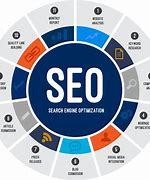
#digitalmarketing#socialmediamarketing#marketing#digitalmarketingtips#entrepreneur#seo#accounting#digitalmarketingagency#digital marketing academy
2 notes
·
View notes
Text
Importance of Social Media Marketing
Social media marketing has become an integral component of modern business strategies, and its importance cannot be overstated. In a digital age where nearly 4.5 billion people worldwide use social media platforms, harnessing the power of these platforms is essential for businesses of all sizes. Here are several key reasons why social media marketing is of paramount importance:
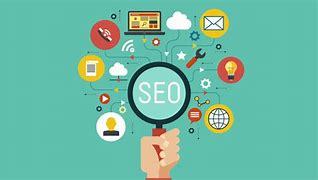
Widespread Reach: Social media platforms such as Facebook, Instagram, Twitter, and LinkedIn have billions of active users. This provides an unparalleled opportunity to reach and connect with a diverse global audience. It allows businesses to transcend geographic boundaries and tap into markets they might never have accessed through traditional marketing channels.
Targeted Advertising: Social media platforms offer advanced targeting options that enable businesses to reach specific demographics, interests, and behaviors. This level of precision ensures that marketing messages are delivered to the most relevant audience, increasing the likelihood of engagement and conversion.
Cost-Effective: Compared to traditional marketing channels like television or print media, social media marketing is often much more cost-effective. It allows businesses to allocate their budgets more efficiently and generate a higher return on investment. Many social media advertising options are accessible to even small businesses with limited budgets.
Engagement and Interaction: Social media platforms facilitate two-way communication between businesses and their audience. This interaction fosters engagement and builds relationships, leading to increased brand loyalty. Responding to comments, messages, and feedback in a timely manner can create a positive image for the brand.
Brand Awareness and Recognition: Consistent and well-executed social media marketing helps increase brand visibility and recognition. Regular posts, stories, and interactions help keep a brand in the minds of consumers, making them more likely to choose that brand when making purchasing decisions.
Content Distribution: Social media allows businesses to distribute various forms of content, including text, images, videos, and live streams. This flexibility ensures that businesses can convey their messages in creative and engaging ways, catering to diverse consumer preferences.
Data and Analytics: Social media platforms provide robust analytics tools that help businesses track the performance of their marketing campaigns. This data can be used to refine strategies, optimize content, and measure the success of specific initiatives, leading to continuous improvement.
Competitive Advantage: In many industries, social media marketing is no longer an option but a necessity. Businesses that effectively leverage social media gain a competitive advantage, as they stay relevant and meet the evolving needs and expectations of their target audience.
Customer Feedback and Market Research: Social media offers a unique platform for collecting valuable feedback and conducting market research. Businesses can gain insights into customer preferences, pain points, and trends, helping them make informed decisions and tailor their offerings accordingly.
Global Trends and Virality: Social media is a breeding ground for trends, challenges, and viral content. When used strategically, businesses can tap into these trends to gain massive exposure and rapidly expand their reach.
In conclusion, the importance of social media marketing cannot be underestimated in the modern business landscape. It's a powerful tool for businesses to connect with their audience, increase brand visibility, and drive revenue. However, success in social media marketing requires a well-thought-out strategy, regular updates, and a commitment to engaging with and understanding the target audience.

#socialmediamarketing#digitalmarketing#marketing#entrepreneur#digitalmarketingtips#digital media#social marketing#socialmediatips#social media
5 notes
·
View notes
Text
Digital Marketing Tips and Tricks
Understand your audience and your goals.
Before you start any digital marketing campaign, it's important to understand your target audience and what you want to achieve with your campaign. What are their demographics? What are their interests? What are their needs and pain points? Once you have a good understanding of your audience, you can tailor your messaging and content to resonate with them.

Create compelling content.
Content is king when it comes to digital marketing. Your content should be informative, engaging, and relevant to your target audience. It should also be well-written and edited. If you can create high-quality content that people want to read, watch, or listen to, you'll be well on your way to success.

Optimize your website for search engines (SEO).
SEO stands for search engine optimization. It's the process of optimizing your website and content so that it ranks higher in search engine results pages (SERPs). When you rank higher in SERPs, you're more likely to be seen by potential customers. There are a number of things you can do to improve your SEO, such as using relevant keywords in your titles and meta descriptions, creating high-quality content, and building backlinks to your website.
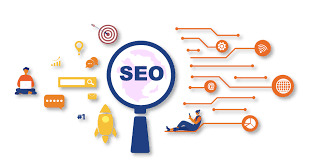
Use social media to connect with your audience.
Social media is a great way to connect with your target audience and build relationships with them. By sharing interesting and engaging content, you can attract new followers and promote your brand. You can also use social media to run contests and giveaways, and to provide customer support.

Track your results and measure your ROI.
It's important to track the results of your digital marketing campaigns so that you can see what's working and what's not. This will help you to refine your campaigns over time and improve your ROI. There are a number of different tools that you can use to track your results, such as Google Analytics and social media analytics.
Here are some additional tricks that you can use to improve your digital marketing results:
Use email marketing to stay in touch with your audience and promote your products or services.
Run paid advertising campaigns on platforms such as Google Ads and Facebook Ads.
Partner with other businesses in your industry to cross-promote each other's products or services.
Attend industry events and conferences to network with potential customers and partners.
Stay up-to-date on the latest digital marketing trends and technologies.
By following these tips and tricks, you can improve your digital marketing results and achieve your business goals.

#digitalmarketing#marketing#seo#socialmediamarketing#accounting#entrepreneur#digitalmarketingtips#searchengineoptimization#onlinemarketing#marketingagency
4 notes
·
View notes
Text
Importance of digital marketing:
Reach your target audience where they spend their time. The average person spends over 6 hours a day on the internet, so it's important to be present where your potential customers are. Digital marketing allows you to reach your target audience on a variety of platforms, including search engines, social media, email,and websites.
Target your ideal audience. With digital marketing, you can target your ideal audience with laser precision. This is because digital marketing platforms allow you to collect data about your audience, such as their demographics, interests, and online behavior. Once you have this data, you can create targeted marketing campaigns that are more likely to resonate with your ideal audience.
Measure your results and optimize your campaigns. Digital marketing is highly measurable. This means that you can track the performance of your campaigns and see what's working and what's not. This data allows you to make adjustments to your campaigns in real time to improve your results.
Cost-effectiveness. Digital marketing is one of the most cost-effective ways to market your business. There are a variety of free and low-cost digital marketing tools and platforms available. Additionally, you can scale your digital marketing campaigns up or down as needed, depending on your budget.
Compete with larger corporations. Digital marketing levels the playing field for businesses of all sizes. With digital marketing, you can compete with larger corporations for the same keywords and target audience. This is because digital marketing platforms rank your website or content based on relevancy, not budget.
In addition to these five importance, digital marketing can also help you to:
Build brand awareness
Generate leads and sales
Improve customer relationships
Increase website traffic
Boost SEO rankings
Establish yourself as a thought leader in your industry
Overall, digital marketing is an essential tool for businesses of all sizes. It allows you to reach your target audience, measure your results, and optimize your campaigns to achieve your business goals.
89 notes
·
View notes
Text
Digital Marketing Tips
Digital marketing is the process of using digital channels to promote or market products or services to consumers and businesses. It includes a wide range of activities, such as search engine optimization (SEO), search engine marketing (SEM), social media marketing, content marketing, email marketing, and affiliate marketing.
Digital marketing can be a very effective way to reach your target audience and grow your business. However, it can also be very competitive, so it's important to use the right strategies and tactics.
Here are four tips and tricks for effective digital marketing:
1. Know your audience. The first step to any successful marketing campaign is to understand your target audience. Who are you trying to reach? What are their needs and wants? What are their interests? Once you understand your audience, you can tailor your marketing messages and choose the right channels to reach them.
2. Create high-quality content. One of the best ways to attract and engage your target audience is to create high-quality content that is relevant to their interests. This could include blog posts, articles, infographics, videos, or podcasts. Your content should be informative, engaging, and well-written.
3. Use social media effectively. Social media is a powerful tool for reaching your target audience and building relationships with potential customers. However, it's important to use social media effectively. Make sure you are posting relevant content on a regular basis and that you are interacting with your followers.
4. Track your results. It's important to track the results of your digital marketing campaigns so that you can see what's working and what's not. This will help you to refine your strategies and improve your results over time.
Here are some additional tips and tricks for effective digital marketing:
Use relevant keywords throughout your website and content. This will help your website to rank higher in search engine results pages (SERPs).
Run paid advertising campaigns on search engines and social media platforms. This can be a great way to reach your target audience and drive traffic to your website.
Use email marketing to stay in touch with your subscribers and promote your products or services.
Offer incentives for your customers to refer your business to their friends and family.
Use analytics tools to track your website traffic and social media engagement. This data can help you to identify what's working and what's not.
Digital marketing can be a very effective way to reach your target audience and grow your business. By following these tips and tricks, you can create a digital marketing strategy that is tailored to your specific needs and goals.
Here are some additional tips and tricks that you can use to improve your digital marketing results:
Use high-quality images and videos. Visual content is very engaging and can help to capture your audience's attention. Make sure you are using high-quality images and videos throughout your website and social media pages.
Write compelling headlines and descriptions. Your headlines and descriptions are the first things that people will see when they come across your content. Make sure they are clear, concise, and attention-grabbing.
Use a call to action. Tell your audience what you want them to do. This could be to visit your website, sign up for your email list, or make a purchase.
Make it easy for people to share your content. Include social sharing buttons on your website and blog posts. You can also encourage your followers to share your content on their social media pages.
By following these tips and tricks, you can create a digital marketing strategy that is effective and engaging.tunesharemore_vert

#socialmediamarketing#digitalmarketing#marketing#entrepreneur#digitalmarketingcompany#digitalmarketingtips
3 notes
·
View notes
Text
Digital Marketing Strategy
Set Clear Goals and Objectives: The first step in creating a digital marketing strategy is to define clear goals and objectives. These goals should be specific, measurable, attainable, relevant, and time-bound (SMART). Examples include increasing website traffic, generating leads, improving brand awareness, or driving online sales.
2. Understand Your Target Audience: To effectively reach and engage your target audience, it's important to understand their demographics, interests, behaviors, and pain points. Conduct market research, analyze customer data, and create buyer personas to gain insightful information about your target audience. This will help you tailor your digital marketing efforts to resonate with them.
3. Choose the Right Digital Channels: Identify the digital channels that are most relevant to your target audience and align with your marketing goals. Common digital channels include websites, search engines, social media platforms, email marketing, content marketing, mobile apps, and online advertising. Each channel has unique characteristics and advantages, so choose the ones that best suit your business and audience.
4. Develop Content Strategy: Content is at the heart of digital marketing. Create a content strategy that focuses on delivering value to your target audience. Plan and produce high-quality content that aligns with their interests, needs, and preferences. This can include blog articles, videos, infographics, eBooks, webinars, and social media posts. Consistency and relevance are key to establishing thought leadership and building trust with your audience.
5. Optimize for Search Engines: Implement search engine optimization (SEO) strategies to improve your website's visibility in search engine results. Conduct keyword research to identify relevant search terms and optimize your website's on-page elements, such as meta tags, headings, and content. Create high-quality backlinks from reputable websites to boost your website's authority.
6. Leverage Social Media: Utilize social media platforms to connect with your audience, build brand awareness, and foster engagement. Identify the platforms where your target audience is most active and create compelling content tailored to each platform. Engage in conversations, respond to comments, and encourage user-generated content to cultivate a sense of community and brand loyalty.
7. Implement Email Marketing: Email marketing remains an effective way to nurture leads and engage with existing customers. Develop an email marketing strategy that includes personalized and segmented email campaigns. Provide valuable content, offers, and promotions to your subscribers, and automate email sequences to streamline your communication.
8. Monitor, Measure, and Adjust: Regularly monitor the performance of your digital marketing efforts using analytics tools. Track key performance indicators (KPIs) such as website traffic, conversion rates, engagement metrics, and ROI. Use the insights gained to identify areas for improvement and make data-driven adjustments to optimize your strategy.
9. Stay Updated and Evolve: The digital marketing landscape is constantly evolving. Stay updated with the latest trends, technologies, and industry best practices. Experiment with new channels and tactics to reach your audience. Continuously adapt your strategy based on market changes and feedback from your audience.
10. Evaluate and Refine: Regularly evaluate the effectiveness of your digital marketing strategy against your goals. Identify successes, challenges, and areas of improvement. Refine your strategy based on the insights gained to ensure continuous growth and success.
11. In summary, a well-rounded digital marketing strategy involves setting clear goals, understanding your audience, choosing the right channels, creating valuable content, optimizing for search engines, leveraging social media and email marketing, monitoring and measuring performance, staying updated, and evaluating and refining your approach. By following these steps, businesses can effectively harness the power of digital marketing to achieve their objectives and drive sustainable growth.

19 notes
·
View notes